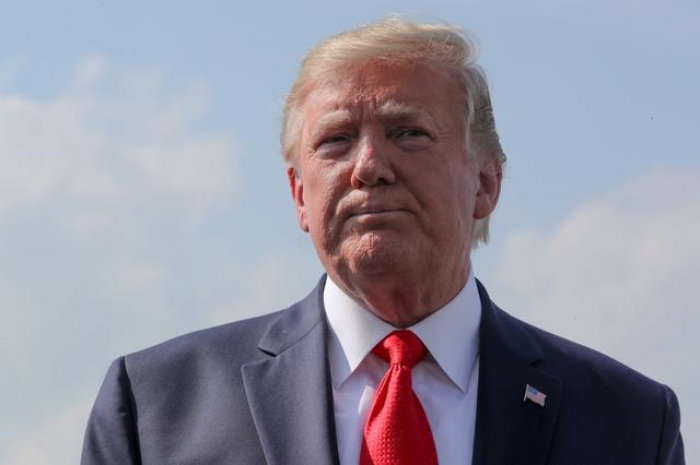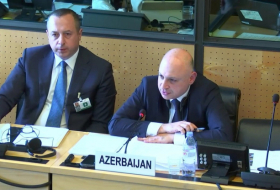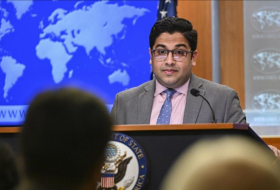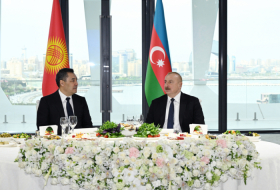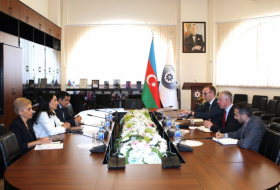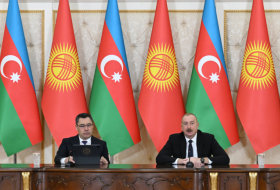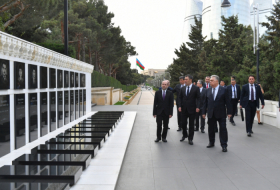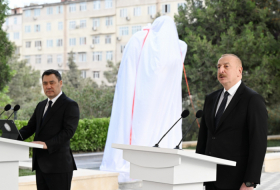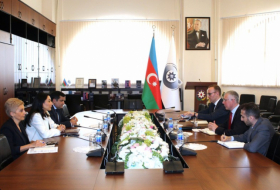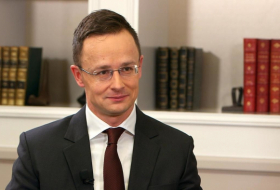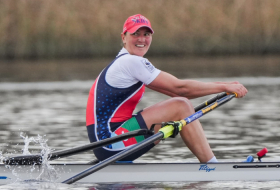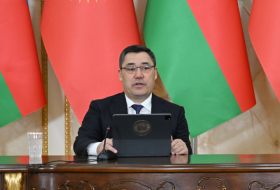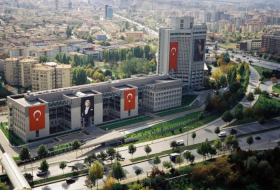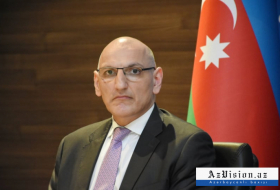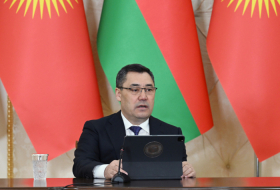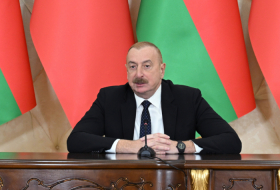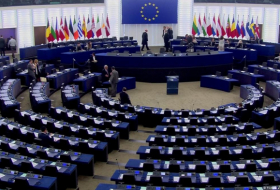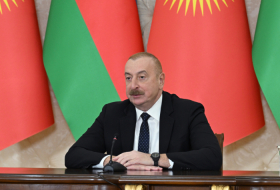He said the case was "tragic" but urged reporters to focus instead on China, which he said was a bigger threat to the world than Russia.
Nato and Germany say there is "proof beyond doubt" that Mr Navalny was attacked with a Novichok nerve agent.
His team says he was poisoned on the Kremlin's orders. Russia denies this.
Mr Navalny - an anti-corruption campaigner who has long been the most prominent face of opposition to President Vladimir Putin in Russia - is in a coma in a Berlin hospital having been airlifted there from Siberia, where he fell ill.
What did Trump say?
Speaking at a press event on Friday, he said he had yet to see evidence of poisoning in the case.
"So I don't know exactly what happened. I think it's tragic, it's terrible, it shouldn't happen. We haven't had any proof yet but I will take a look," he said.
He also stopped short of criticising Mr Putin and said Beijing posed a greater threat.
"It is interesting that everybody's always mentioning Russia and I don't mind you mentioning Russia but I think probably China at this point is a nation that you should be talking about much more so," he said.
What is Nato's position?
Tests at a military laboratory in Germany show "beyond doubt" the presence of a Novichok nerve agent, the German government and Nato say.
On Friday Nato called for Russia to disclose its Novichok nerve agent programme to international monitors. Secretary General Jens Stoltenberg said members were united in condemning the "horrific" attack on Mr Navalny.
Mr Stoltenberg said it required an international response, but gave no further details.
The US National Security Council has pledged to "work with allies and the international community to hold those in Russia accountable".
What has Russia said?
The Kremlin has repeatedly denied any involvement in Mr Navalny's case.
Foreign Minister Sergei Lavrov said Germany had not yet shared any findings with Moscow prosecutors and said Russia had "nothing to hide".
Meanwhile a toxicologist in Omsk - where Mr Navalny was initially treated after the plane he was flying on made an emergency landing - insisted no poison had been found by doctors who examined him there.
"Any external factors could have triggered a sudden deterioration. Even a simple lack of breakfast," said Alexander Sabayev, chief toxicologist for the Omsk region.
What happened to Navalny?
He fell ill last month while on a flight from Siberia to Moscow.
The plane made an emergency landing in Omsk and Russian officials were persuaded to allow him to be airlifted to Germany two days later.
A nerve agent from the Novichok group identified by Germany in the Navalny case was also used to poison ex-spy Sergei Skripal and his daughter in the UK in 2018. They both survived but a local woman, Dawn Sturgess, died after coming into contact with the poison.
Britain accused Russia's military intelligence of carrying out that attack in Salisbury. As part of a co-ordinated response, 20 countries expelled more than 100 Russian diplomats and spies. Russia denied any involvement.
More about:








